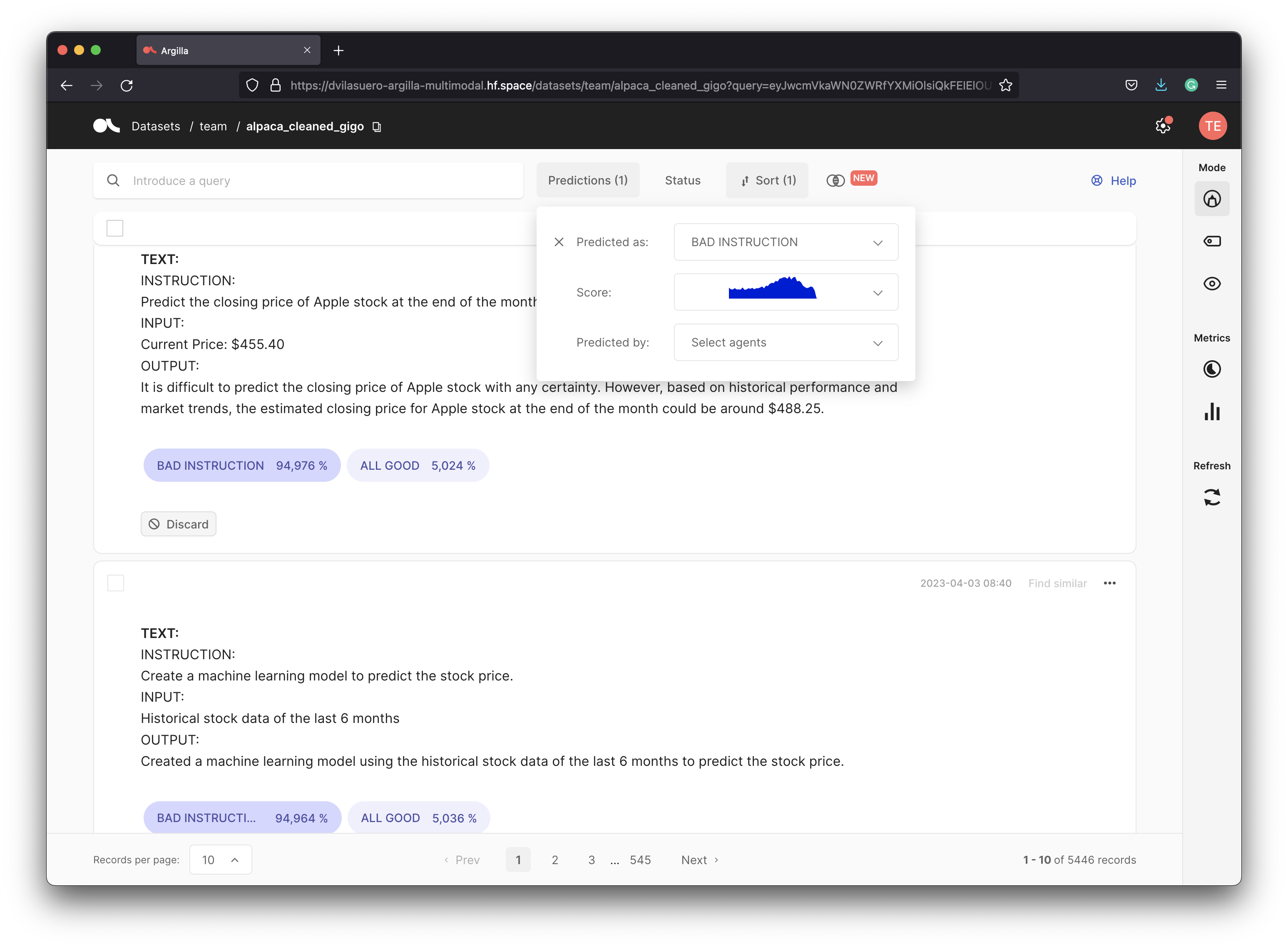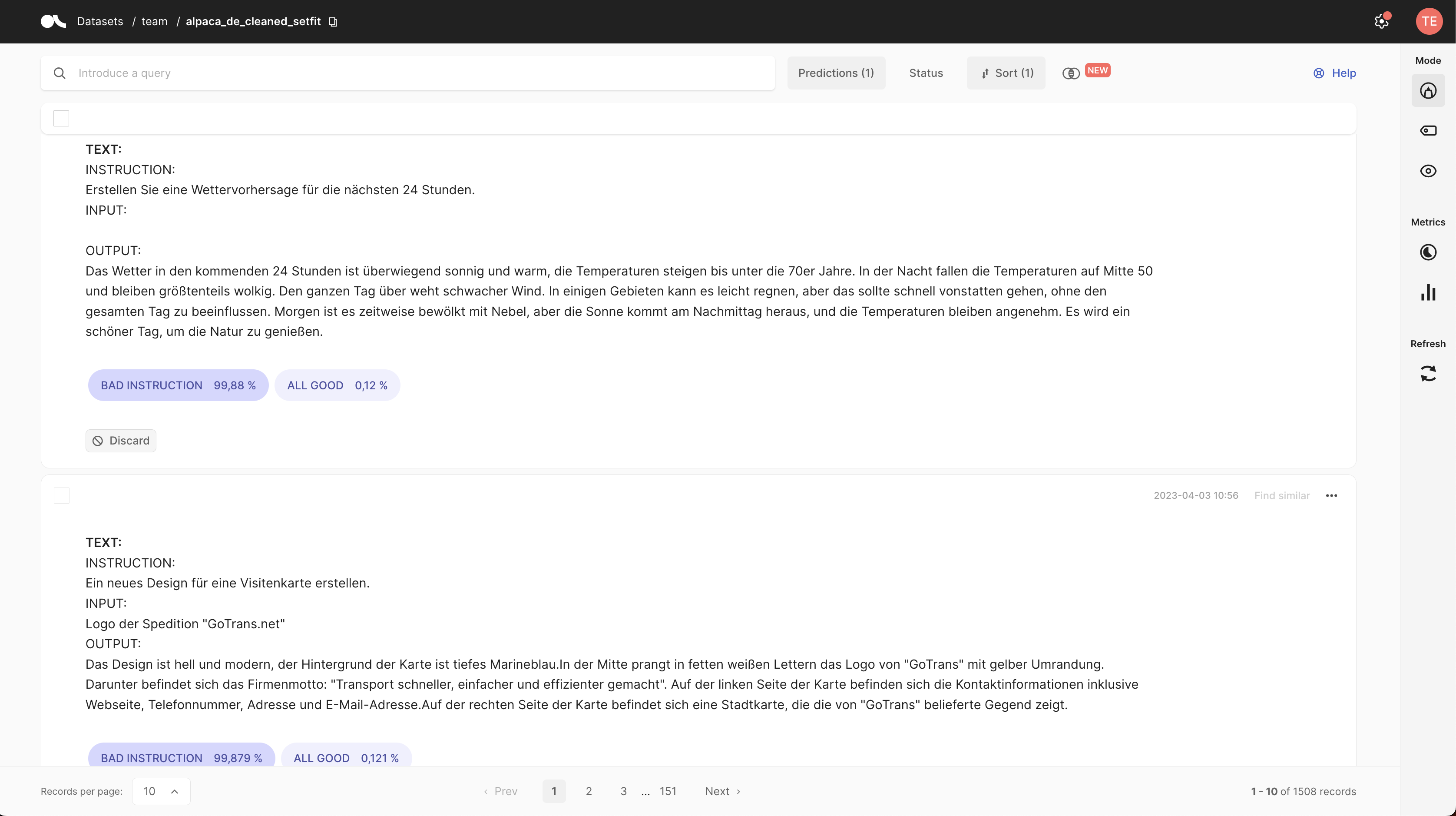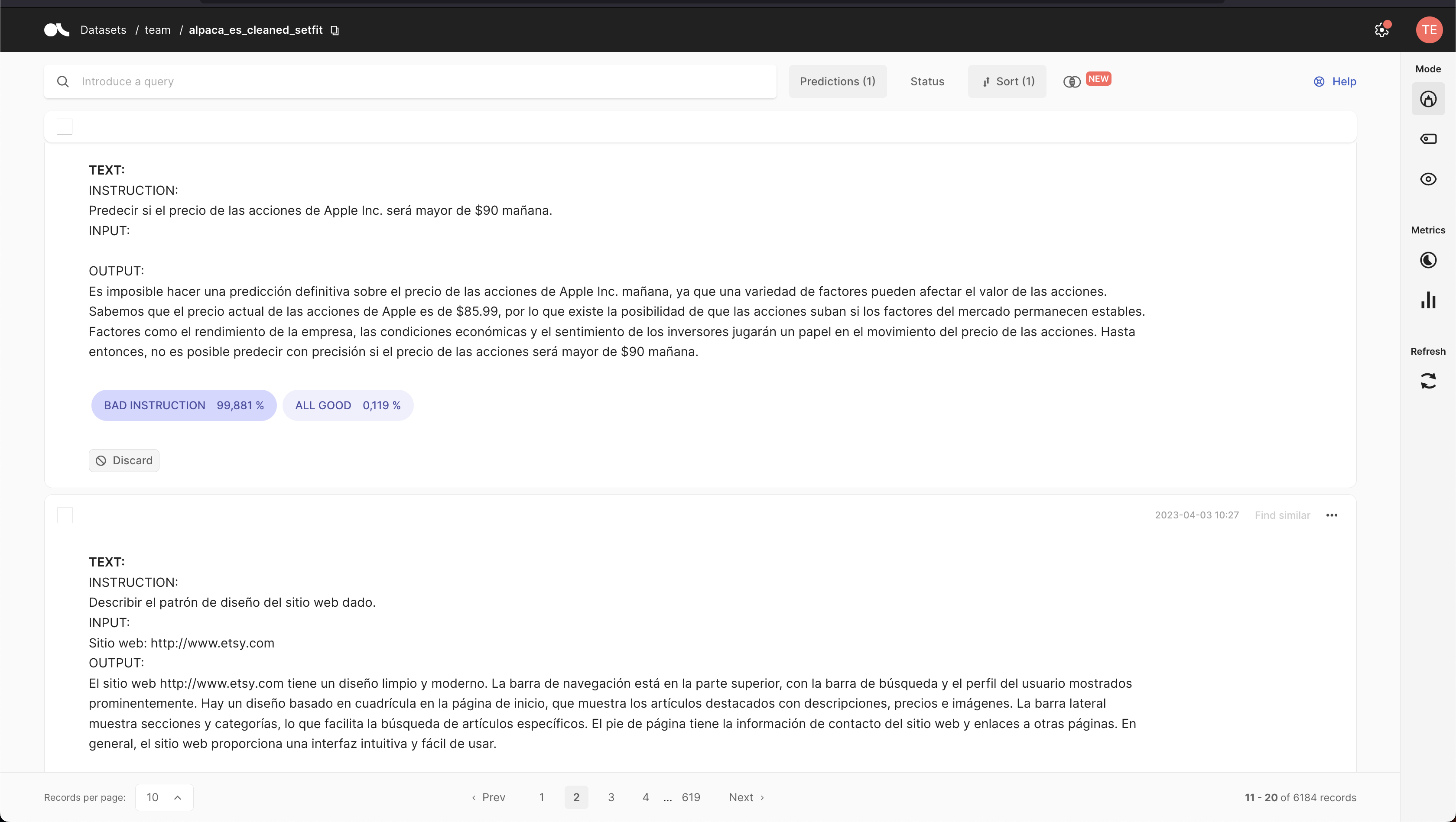license: apache-2.0
tags:
- setfit
- sentence-transformers
- text-classification
pipeline_tag: text-classification
datasets:
- argilla/alpaca-gigo-detector
🚮 🦙 Alpaca GarbageCollector
A cross-lingual SetFit model to detect bad instructions from Alpaca Datasets and other instruction-following datasets.
GarbageCollector can greatly speed up the validation of instruction-datasets across many languages, flagging examples that need to be fixed or simply discarded.
Data quality is key for LLMs, but open-source LLMs are being built with data of "unknown" quality. This model can help practitioners to find and fix frequent issues (e.g., the model hallucinating stock prices, describing non-existing images, etc.)
The model has been fine-tuned with 1,000 labeled examples from the AlpacaCleaned dataset labeled with Argilla. It leverages a multilingual sentence transformer paraphrase-multilingual-mpnet-base-v2, inspired by the findings from the SetFit paper (Section 6. Multilingual experiments.), where they trained models in English that performed well across languages.

It's a binary classifier with two labels:
ALL GOOD, a given instruction, input, and output are correct,BAD INSTRUCTION, there's an issue with the instruction, and/or input and output.
This model can be used as follows (see full usage instructions below):
from setfit import SetFitModel
# Download from Hub
model = SetFitModel.from_pretrained(
"argilla/alpaca-garbage-collector-multilingual"
)
text = """
INSTRUCTION:
Gebt mir drei Adjektive, um dieses Foto zu beschreiben.
INPUT:
[photo]
OUTPUT:
Auffällig, lebhaft, ruhig.
"""
model.predict([text])
Output: BAD INSTRUCTION
Usage
To use this model for inference, first install the SetFit library:
python -m pip install setfit
Load your Alpaca Dataset:
from datasets import Dataset, load_dataset
import pandas as pd
# this can be a translation (e.g., Spanish, Camoscio Italian Alpaca, etc.)
dataset = pd.read_json("https://github.com/gururise/AlpacaDataCleaned/raw/main/alpaca_data_cleaned.json")
dataset["id"] = [i for i in range(len(dataset))]
ds = Dataset.from_pandas(dataset)
Create a text field containing the instruction, input and output to use for inference:
def transform(r):
return {
"text": f"INSTRUCTION:\n{r['instruction']}\nINPUT:\n{r['input']}\nOUTPUT:\n{r['output']}\n"
}
ds = ds.map(transform)
Load the model:
from setfit import SetFitModel
# Download from Hub
model = SetFitModel.from_pretrained("argilla/alpaca-garbage-collector-multilingual")
Perform inference and prediction col to your dataset:
labels = ["ALL GOOD", "BAD INSTRUCTION"]
def get_predictions(texts):
probas = model.predict_proba(texts, as_numpy=True)
for pred in probas:
yield [{"label": label, "score": score} for label, score in zip(labels, pred)]
ds = ds.map(lambda batch: {"prediction": list(get_predictions(batch["text"]))}, batched=True)
Load the data into Argilla for exploration and validation. First, you need to launch Argilla. Then run:
# Replace api_url with the url to your HF Spaces URL if using Spaces
# Replace api_key if you configured a custom API key
rg.init(
api_url="https://your-agilla-instance.hf.space",
api_key="team.apikey"
)
rg_dataset = rg.DatasetForTextClassification().from_datasets(ds)
rg.log(records=rg_dataset, name="alpaca_to_clean")
Live demo
You can explore the dataset using this Space (credentials: argilla / 1234):
Examples
This model has been tested with English, German, and Spanish. This approach will be used by ongoing efforts for improving the quality of Alpaca-based datasets, and updates will be reflected here.
Here are some examples of highest scored examples of BAD INSTRUCTION.
English

German

Spanish

BibTeX entry and citation info
@article{https://doi.org/10.48550/arxiv.2209.11055,
doi = {10.48550/ARXIV.2209.11055},
url = {https://arxiv.org/abs/2209.11055},
author = {Tunstall, Lewis and Reimers, Nils and Jo, Unso Eun Seo and Bates, Luke and Korat, Daniel and Wasserblat, Moshe and Pereg, Oren},
keywords = {Computation and Language (cs.CL), FOS: Computer and information sciences, FOS: Computer and information sciences},
title = {Efficient Few-Shot Learning Without Prompts},
publisher = {arXiv},
year = {2022},
copyright = {Creative Commons Attribution 4.0 International}
}